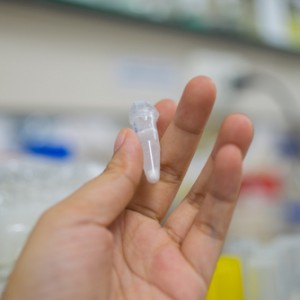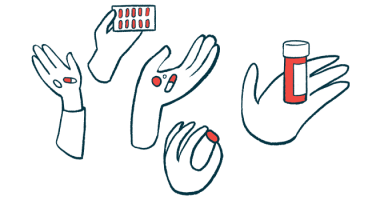Akashi Therapeutics, Inc. To Receive $500,000 Grant From Parent Project Muscular Dystrophy To Assess HT-100
by |

 The Parent Project Muscular Dystrophy (PPMD) organization has announced that it will award a $500,000 grant to Akashi Therapeutics, Inc. (Akashi) to fund clinical trials that will assess whether the company’s HT-100 (delayed-release halofuginone), a new investigational drug, is safe and effective against Duchenne muscular dystrophy.
The Parent Project Muscular Dystrophy (PPMD) organization has announced that it will award a $500,000 grant to Akashi Therapeutics, Inc. (Akashi) to fund clinical trials that will assess whether the company’s HT-100 (delayed-release halofuginone), a new investigational drug, is safe and effective against Duchenne muscular dystrophy.
Duchenne muscular dystrophy is the most common fatal genetic disorder among children. It affects one in every 3,500 to 5,000 live male births, which accounts for about 20,000 new cases of the disease per year. The disease affects boys disproportionately because the gene that is responsible for it is found on the single X chromosome. The mutation associated with DMD affects the normal function of a protein called dystrophin, a crucial structural component of the cell membrane.
HT-100 is an oral drug that is being developed to reduce fibrosis and inflammation and to achieve healthy muscle fiber regeneration in patients suffering with Duchenne muscular dystrophy. Dr. Mark Pines from the Volcani Institute in Israel has been working on utilizing the HT-100 drug to treat DMD as well as other fibrotic diseases. Akashi Therapeutics, led by Marc Blaustein, the company’s CEO, received the orphan designation for the drug to treat the disease in the United States and in the European Union, as well as Fast Track designation from the FDA. Phase 1b and a Phase 2a clinical trials are currently underway at five hospitals in the U.S.
The new grant from the PPMD will allow Akashi to assess tolerability, safety and pharmacokinetics of the drug in patients suffering with DMD in the open-label, single and multiple-ascending dose Phase 1b and Phase 2a studies.
[adrotate group=”3″]
This grant is being awarded based on positive reviews by the PPMD’s Scientific Advisory Committee and the TREAT-NMD Advisory Committee on Therapeutics (TACT).
Preclinical studies in young mice demonstrated that HT-100 can reduce the amount of fibrosis gathered in the diaphragm muscles and heart, which allowed them to recover some movement. Studies in older mice showed that there was some respiratory and cardiac improvement.
Pat Furlong, CEO of PPMD, said in a press release: “Marc Blaustein and the team at Akashi are innovators and leaders in the Duchenne space. We are thrilled to be able to support this next critical step in the journey of HT-100, a therapy that we believe in. PPMD is excited to partner with Akashi and appreciate that, like us, they believe it is as important for a drug to be safe, as it is to be effective.”
Blaustein concluded: “PPMD was an early supporter of our efforts to develop HT-100 and this funding—following a thorough scientific review—comes at a crucial time as we continue to generate both safety and efficacy data from the HT-100 clinical program in boys with DMD. We are grateful for PPMD’s continued financial support and pleased to build on our already-strong relationship with PPMD and the broader DMD patient community.”







